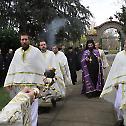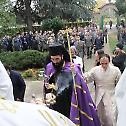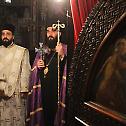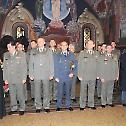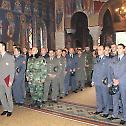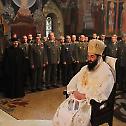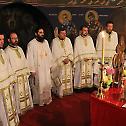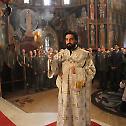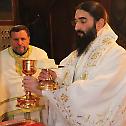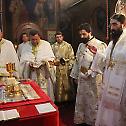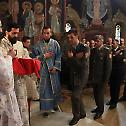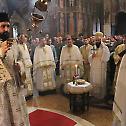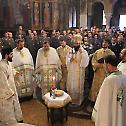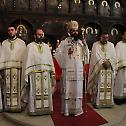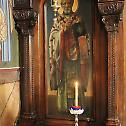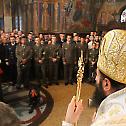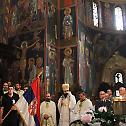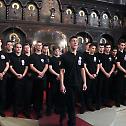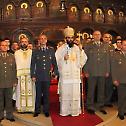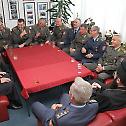Prayerful gathering in memory of 100th anniversary of the Battle of Kolubara
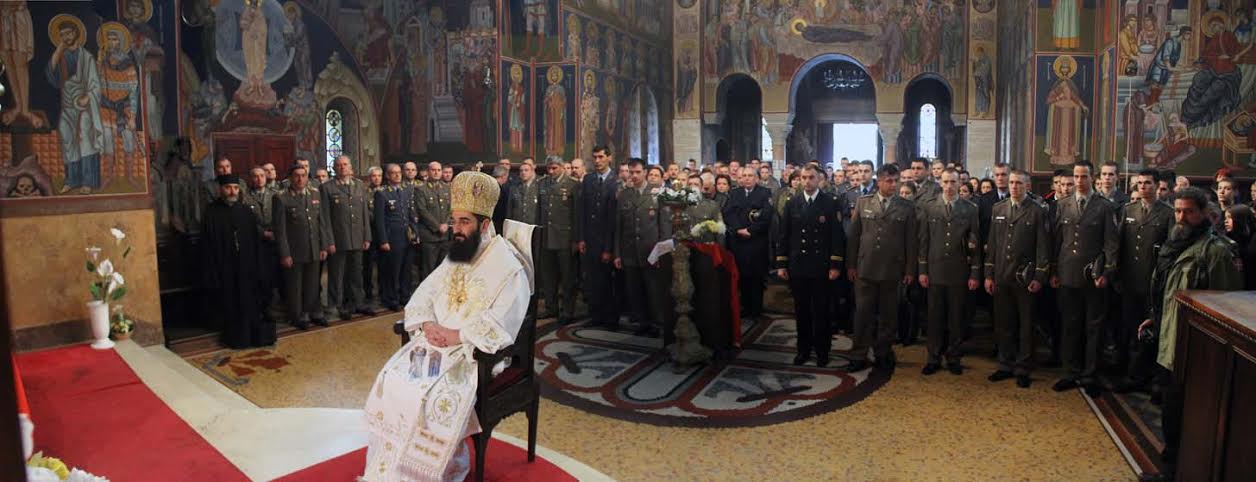 On Monday, 4th November 2014 His Grace Bishop Arsenije of Toplica officiated the solemn Liturgy in honour of the 100th anniversary of the famous Battle of Kolubara.
On Monday, 4th November 2014 His Grace Bishop Arsenije of Toplica officiated the solemn Liturgy in honour of the 100th anniversary of the famous Battle of Kolubara.
The Bishop was concelebrated by protopresbyter-stavrophor Dr. Dragomir Sando, chairman of the Committee for religious education of the Archbishopric of Belgrade-Karlovac; five military chaplains, serving in military units in the territory of Belgrade, and two deacons. More than hundred army members, led by Chief of the Staff General LjubisaDikovic, participated in the Liturgy. Bishop Arsenije served the panichida for all the warriors fallen in the First World War, especially for the famous Field Marshal ZivojinMisic and the fighters of the Battle of Kolubara.
His Holiness Serbian Patriarch Irinej awarded Lieutenant Colonel MikanVasiljevic with a special grammata (charter) for the merits while organizing religious service in the Serbian Armed Forces.
At the request of teh General Staff, His Holiness has brought decision to declare the church of Holy Archangel Gabriel as a military church, which means that in the territory of the City of Belgrade it will be the place of gathering of members of all Army units, i.e. the place where people will meet their Army.
***
The most significant battle in newer Serbian military history – the Battle of Kolubara, began on 16 November 1914. It lasted one month and had three phases. In the first phase (until the end of November) strong Austro-Hungarian forces were coming from north-west, and our units were gradually withdrawing.
The situation in our army was quite hard. Between the main strategist of this battle, General ZivojinMisic and Crown Prince Alexander and the Serbian Government there was a disagreement on further steps. Fortunately, the genius from Struganik, General Misic, was obeyed. Just in the beginning of December, the army was withdrawn to reserve positions, pulled out from the combat contact and separated from civilians. Soldiers rested, were fed, and the ammunition came along. European countries conveyed news that allied Serbian army was close to a collapse and surrender, and Serbia was about to fall. After two, three days of rest, General Misic ordered a decisive and sharp attack against all units of Austria-Hungary. The battle ended with the complete defeat of the enemy and the solemn entry of our army into Belgrade on 15 December 1914.
With this victory our army gained the world fame, General Misic was promoted to the rank of Field Marshal, and the Battle of Kolubara entered into the curriculum of many prestigious military academies in the world.

